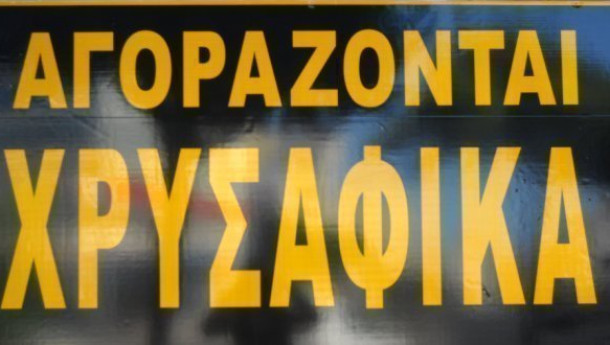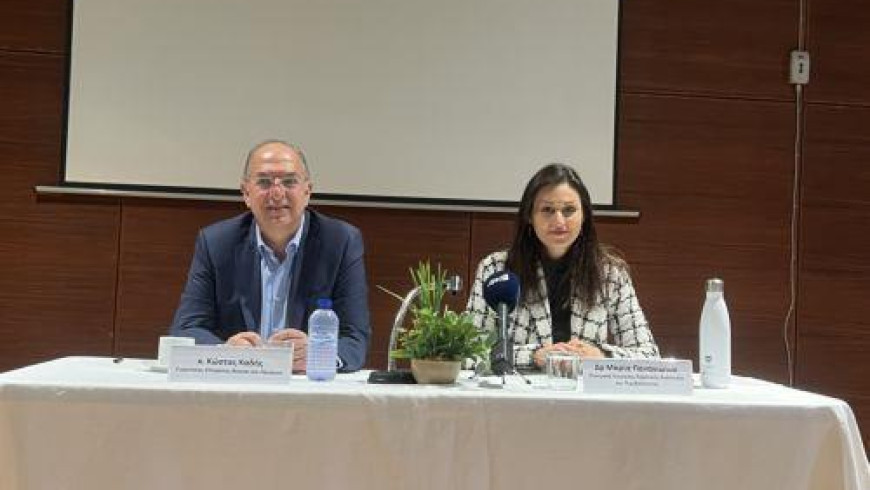
The extended economic recession and the increase in the price of precious metal led to the liquidation of jewelry, causing a headache to the authorities.
Businesses trading second hand jewellery have increased lately, taking advantage of the loophole in the relevant law.
According to director of Cyprus Assay Office, Christos Kayias, although there are no data on their exact number, it is estimated that there are currently around 40-50 shops belonging to 10 entrepreneurs.
Mr. Kayias said that the rise of the phenomenon is due to deadlocks caused by the ongoing financial crisis and the rising price of gold whose price has more than doubled in recent years. From €24 per gram in 2007 it has reached €40.
Gold pirates
The phenomenon has aroused strong feelings to Cypriot prosecutors, who urged the Parliament to give them the tool to fight it.
Spokesman of the police headquarters, Andreas Angelides, stated that these entrepreneurs are pirates and the Parliament will pass a law to eliminate the phenomenon soon.
“There have been cases of exploitation of citizens. Since the current legislation does not cover this type of business no one can prohibit their operation”, he said.
“We intervene only if there is a complaint for an offense fence or evidence or suspicion that the product is a result of theft”, he added.
“The Parliament is expected to pass the amendment of the law on object hallmarking in October”.
“We will introduce a provision according to which anyone who runs such a business should keep a number of criteria to be able to secure permission from the organization”.
“This will include record keeping which will be subject to the control of the police, guarding the jewels for a specific time period and other similar provisions”, he concluded.
The Cyprus Association of Goldsmithery and Silversmithery sounded the alarm and urged the government to take responsibility as soon as possible.
“Unfortunately, some people fall victims to others who destroy relics and traditional wealth”, Vice President of the Association, Panikos Hassikos said.
“Those who sell second hand jewellery do not inform the interested parties about the value that the old stones or gems may have and they pay for the gold only”, he concluded.
Businesses trading second hand jewellery have increased lately, taking advantage of the loophole in the relevant law.
According to director of Cyprus Assay Office, Christos Kayias, although there are no data on their exact number, it is estimated that there are currently around 40-50 shops belonging to 10 entrepreneurs.
Mr. Kayias said that the rise of the phenomenon is due to deadlocks caused by the ongoing financial crisis and the rising price of gold whose price has more than doubled in recent years. From €24 per gram in 2007 it has reached €40.
Gold pirates
The phenomenon has aroused strong feelings to Cypriot prosecutors, who urged the Parliament to give them the tool to fight it.
Spokesman of the police headquarters, Andreas Angelides, stated that these entrepreneurs are pirates and the Parliament will pass a law to eliminate the phenomenon soon.
“There have been cases of exploitation of citizens. Since the current legislation does not cover this type of business no one can prohibit their operation”, he said.
“We intervene only if there is a complaint for an offense fence or evidence or suspicion that the product is a result of theft”, he added.
“The Parliament is expected to pass the amendment of the law on object hallmarking in October”.
“We will introduce a provision according to which anyone who runs such a business should keep a number of criteria to be able to secure permission from the organization”.
“This will include record keeping which will be subject to the control of the police, guarding the jewels for a specific time period and other similar provisions”, he concluded.
The Cyprus Association of Goldsmithery and Silversmithery sounded the alarm and urged the government to take responsibility as soon as possible.
“Unfortunately, some people fall victims to others who destroy relics and traditional wealth”, Vice President of the Association, Panikos Hassikos said.
“Those who sell second hand jewellery do not inform the interested parties about the value that the old stones or gems may have and they pay for the gold only”, he concluded.














 3287.99
3287.99 1275.09
1275.09
